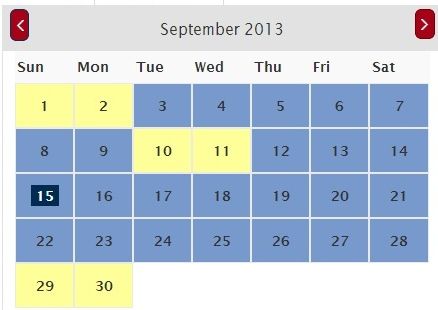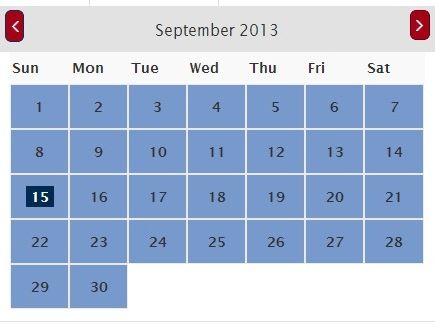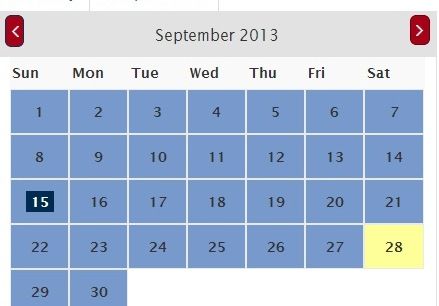The big theme this year in the frequent flyer universe — at least for US airline loyalty programs — is which ones will be trying to make themselves more “revenue-based” and when?
Airline frequent flyer programs — the single most successful marketing innovation in history, and profitable multi-billion dollar businesses in their own right even as the airline business has struggled — have convinced themselves they’ve been doing it wrong all these years.
So trying to figure out how to ‘reward’ only those who ‘contribute the most revenue’ is in vogue.
Even though frequent flyer programs aren’t supposed to be about ‘rewarding’ people, they’re supposed to be engines with which to drive incremental business. Many in the airline industry have difficulty with marginal analysis, however.
Delta is expected to be the first to alter their award charts to more closely align award prices with ticket costs. There’s also speculation about how they could change airline mileage earning to align with ticket price. Already they were first out of the gate with minimum revenue requirements for elite status.
But in researching another post I stumbled upon Delta’s earlier attempts at this, and realized just the extent to which past is prologue — and how we can’t really trust industry promises about what changes will mean for consumers.
In April I declared the pending US Airways-American Airlines merger the death of the double miles award.
It used to be that frequent flyer program members could any seat they wanted in most programs just by spending twice the miles. Some programs like United’s restrict this ability to get the last seat on the plane to their elites and co-brand credit card holders. Most airlines — American excluded — charge way more than double for that seat now.
Back in 2008 Delta rolled out a “third tier” for award redemtpion, with a more expensive level than the traditional two-tier and double miles for the second, higher one.
And Jeff Robertson, then as now head of the program, explained what it meant.
It was the rolling out of revenue-based redemptions.
Each award level is combinable, and with availability on a flight by flight basis on our website, we move the pricing of an award seat a lot closer to the pricing of a revenue seat.
Their 2008 changes were already supposed to be the revenue-based redemptions we fear so much.
Reality was much worse than what we were told to expect
Moving forward, the only people who should really be using “choice” are those who plan last minute when the flights are full, or who are trying to find awards seats during the most peak special events (e.g. Super Bowl).
The third tier — high level — really wasn’t going to effect any of us. Or so we were told.
But what’s the reality?
I had a look at Delta’s award calendar for what I think are reasonable redemptions — 2 business class seats, booked two months in advance, for secondary (and vacation) destinations across the Atlantic.
These aren’t the kind of award seats you might see available on every flight at the low level, but they aren’t last minute and the redemptions don’t involve the Superbowl. So there should be some saver options over the course of a month, and certainly plenty of “medium” award space, right?
That’s what we were promised by Skymiles chief Jeff Robertson.
Here’s the reality. Blue is ‘high’ (325,000 miles roundtrip), yellow is ‘medium’ (200,000 miles roundtrip) and I won’t even bother identifying the supposed color of saver award space (100,000 miles roundtrip).
These were the first three cities I checked space for.
New York – JFK to Nice, France during the month of September

New York – JFK to Venice, Italy during the month of September

New York – JFK to Athens, Greece during the month of September

When a frequent flyer program makes significant changes and makes predictions about how those changes will work in the future for their customers you really shouldn’t believe them. Especially if the airline’s name starts with a D.
- You can join the 30,000+ people who see these deals and analysis every day — sign up to receive posts by email (just one e-mail per day) or subscribe to the RSS feed. It’s free. Don’t miss out!


The thing is Delta just realized before the other airlines that customers are basically lemmings. I’m pretty certain this change will be coming to all the legacies soon enough, given Jeff’s fawning over Delta’s practices. Time to start putting all serious spend on the Chase sapphire and other neutral cards. Also time to burn through those AA, US And UA miles if you can they are ripe for devaluation.
They were revenue based the minute they went to 3-tier awards.
….and that was the plan from the beginning.
Wow, two “Delta sucks” posts in a row… I take it things are slow on the credit card affiliates front…
Of course, everyone knows Delta’s award search engine isn’t very effective, so Gary’s post about the 325K awards above is crying wolf and even he knows it.
I’m sorry for 3 comments on the same post. But in fairness, I have to ask, did you search for seats through other programs between these destinations? I can’t imagine that they aren’t cheaper redemptions, but I am wondering. No more comments, I promise.
Delta’s award search engine isn’t very effective because they want it to be like that. Delta likes it when customers redeem that number of miles and I’m sure some do. If they actually made it a priority to fix it, they could quite easily. At some point it’s just naive to repeatedly give companies the benefit of the doubt about poor technology, when they could really fix it within days if it was a priority. Similar things happen at United, wrt to GPU’s processing and TOD’s being sold.
Wait, we have the CFO of a donor driven organization telling us how rewarding the biggest revenue generators is wrong? I will believe your story when you and your colleagues get off the phone with big corporate donors and come knocking on my door looking to generate revenue on margin by wringing $50 out of me.
Sorry for a couple days of cynical posts…can we pretty pretty please have that SQ trip report? It will be smiles all around!
Good question MJ.
I decided to look at United for the same 3 destinations in the same month.
JFK-Nice shows 3 days at saver and about 1/2 the month “might have availability” but when I click on the days there’s nothing available.
JFK-Venice is a little better with 5 days but again 1/2 the month lacks anything
JFK-Athens has 4 days and 1/2 month is a desert.
Comparing the two, Delta’s 3rd tier seems to be working as envisioned, guaranteeing you’re going to get a seat whereas half the month on United is a desert in terms of availability.
What xid JR do to piss you off?
@omatravel – I think you need to do your searches again, I see plenty more space than that. And I’m not sure what you mean by “elta’s 3rd tier seems to be working as envisioned, guaranteeing you’re going to get a seat whereas half the month on United is a desert in terms of availability.” I think you are comparing United’s saver awards to Delta’s greater than triple points awards? Because United offers greater availability for more points as well.
Further, the point is to compare actual practice with the promise/claim from the head of Delta’s program — it should only be last minute sold out flights and Superbowl type events that lead to 3rd tier availabolity, but that’s the only availability most days per their award calendar.
@CW I really don’t get your point, I don’t do corporate fundraising but that seems a total non-sequitor. My point is the focus on “rewarding” is misplaced, it’s supposed to be “generating incremental business” which is something totally different.
Since we’re on a movie track, I think the Blues Brothers summed up Delta’s defense perfectly:
Elwood (Richard Anderson): Well, what was I gonna do? Take away your only hope? Take away the very thing that kept you going in there? I took the liberty of bullsh!tt!ng you, okay?
Jake (DL customers): You lied to me.
Elwood (RA): It wasn’t a lie, it was just… bullsh!t.
My point is simply that donor based organizations tend to reward their biggest donors most. What is implicit of course is that past performance is in fact assumed to be indicative of future continued giving. And it is a good assumption. So yes, that is generating incremental business…from an existing customer.
So my point is, what is wrong with rewarding based on revenue?
@gary: good analysis but apparently the concept of marginal analysis is too difficult for many readers (and some CEOs). They may believe that now that the industry is more concentrated, suddenly the economic rules will not apply anymore.
@CW: instead of personal attacks, how about you get a basic economics textbook and read up on marginal analysis?
The thing is…it doesn’t reward revenue. I have spent at least $25k sometimes $40k with DL and their partners for the last decade. Mostly intl trips to Europe and Asia. Unfortunately I am hub captive and don’t have much choice). With Diamond status I have access to a few more “low” seats, but I think it is comparable to what the normal Joe finds on UA or AA. I am actually in Hawaii now on AA miles because DL had no availability at the “low” level when I searched in Feb (and yes, I know all the tricks of searching segment by seent, partner sites, etc.)
That should say $25K – $40K annually. Usually get 140K to 200K MQMs per year. Now, I have met some Diamonds who average like 300K/yr. and they talk about being able to get whatever they want at the low level by calling a # so maybe there is an unofficial tier above Diamond.
It’s true…I am no economist! Guess i am getting hung up in the distinction between “rewarding” and “delivering additional incremental business” through the promise of rewarding those who deliver the business. Seem the same to me. Regardless, I will defer to the experts to let me know that I am wrong on this one.
And no personal attacks intended. I was trying to draw a comparison, and yes was snarky, but i did think at the time it was a fair comparison. Perhaps not.
I think the point here is the obvious: DL SkyMiles has practically done away with availability on the lowest tier, and DEsERVES brickbats for this “enhancement”. Both other alliances make low tier seats available far more often, in my experience. Why should I choose DL if I have a choice?
Thanks in large part to several blog posts over the years I have managed to put a huge dent into the broken fortress of Delta.dumb when I try to redeem miles for low level awards. Yes, it is horrible that the system is so messed up, but it is what we have to work with… Low levels can be found much of the time but you have to put in a ton of frustrating trial and error work. You need to search ONLY one way awards, for EVERY segment, starting with a monthly calendar search from the expected city to city pair over the water, then work backwards. I can’t tell you how many times I have seen only high or medium availability when I searched two city pairings only to do lots of leg work and figure out ways to get low level routing. Is it fair? No, of course not, but Delta requires a lot of work to get what you want.
Delta reported a $1.6 billion profit in 2012 (excluding special items). That was nearly $1 billion more than any other legacy carrier. Its stock is up approximately 75% over the past 12 months. You may not like it from a frequent flier perspective, but they are clearly doing something right. Perhaps the better question — from the perspective of profitsbility and shareholder value — is why other legacy carriers are taking so long to follow Delta’s lead.
I am trying to plan some of my Delta trips so I can spend down some of my bulk of miles with them. Even though delta was the first with the status (money spent) qualifier, you see that United jumped right into that as well. I expect American possibly for the same once their merger happens. More than likely this could clip the wings of many on the blogs and attendees of the milepoint convention.So many people get 50% or more of their miles generated from credit card bonuses and the like. While not all travel in premium cabins, taking a 50K or 100K redemption and doubling it will really kill the point chasing game.
I have to think Chase and Citi have significant influence on UA and AA preventing them from mile devaluation. Are they not the two biggest customers in terms of revenue for both airlines?!
@Storm they are currently the best run airline but that doesn’t mean the frequent flyer program is performing as well as it could, or that it will perform better when they make changes.
Given that the Super Bowl is only in the US, the quote perhaps only refers to domestic flight, or a certain type of seat. He may just have left the specifics out. It wouldn’t be the first time….
Or it was just their “ambition”
I want to emphasize what Matt S said. That is a key to dealing with Delta. You CAN extract value but you have to work the system. The one thing that Matt forgot to mention is to focus on SkyTeam and other partners to “get across the water” to find the low level redemptions. Usually not nearly as hard to piece together the domestic connections to keep it “low tier” for awards. Then, if a schedule change happens, Delta will pretty much let you do as you want.